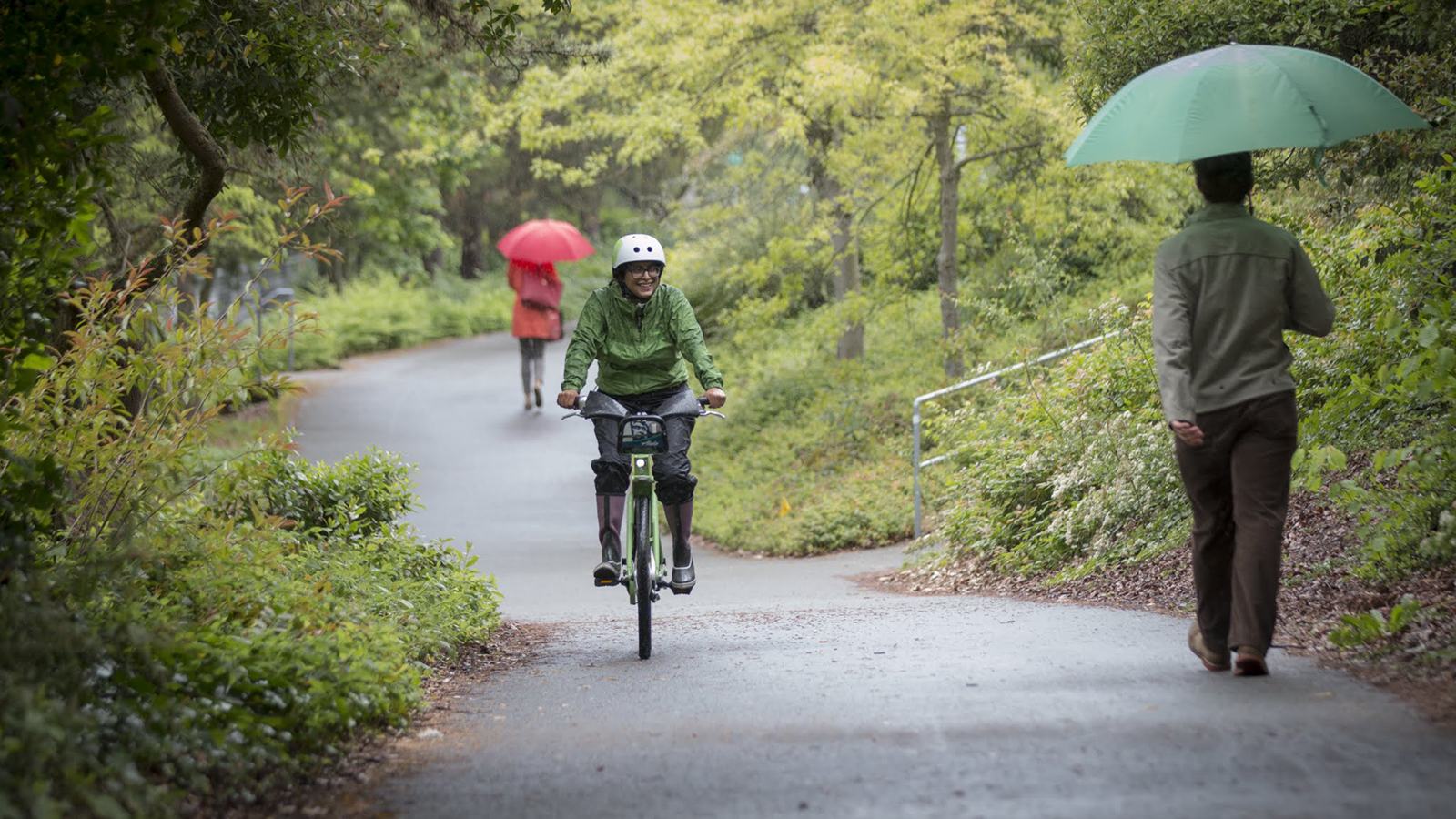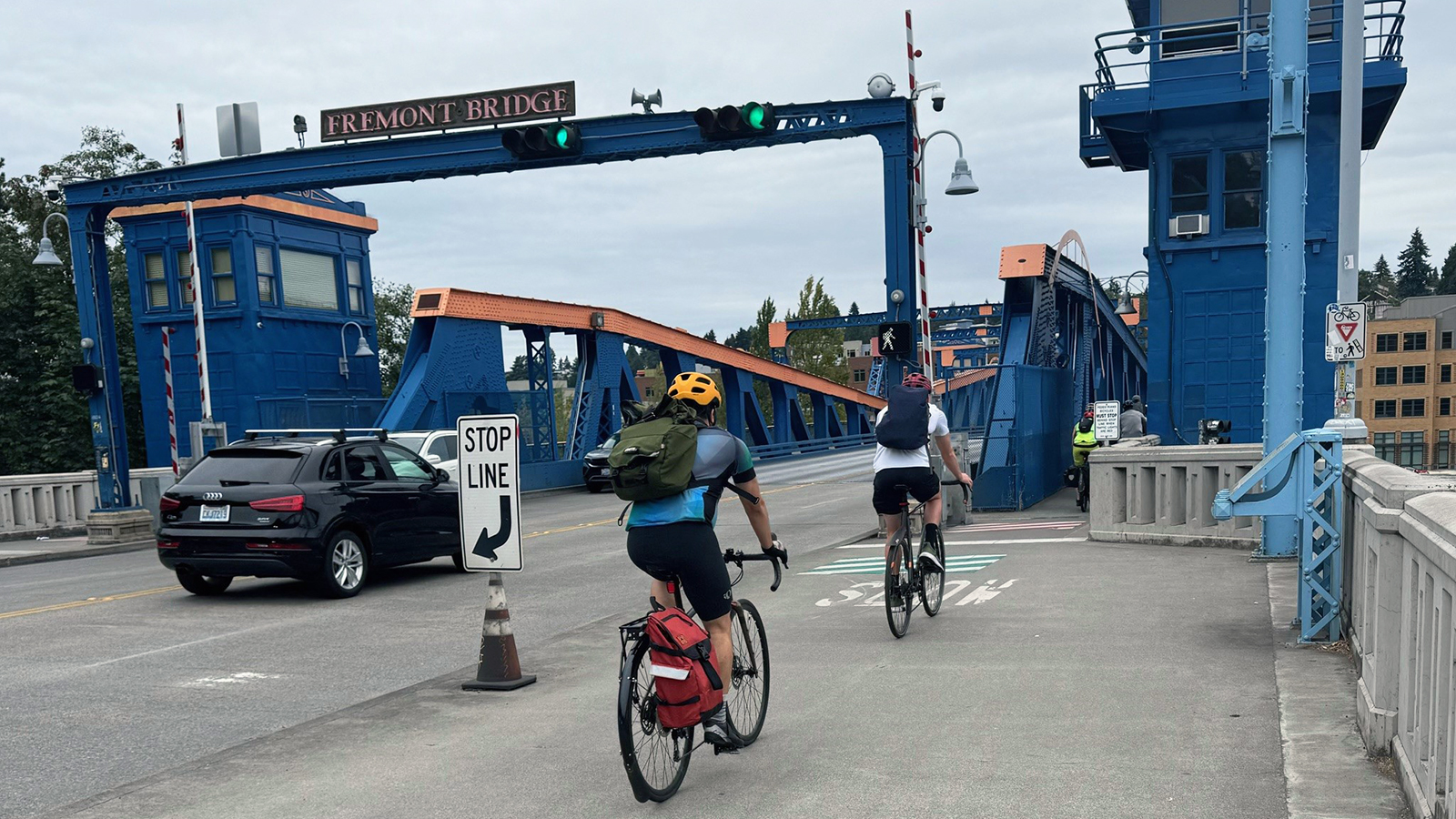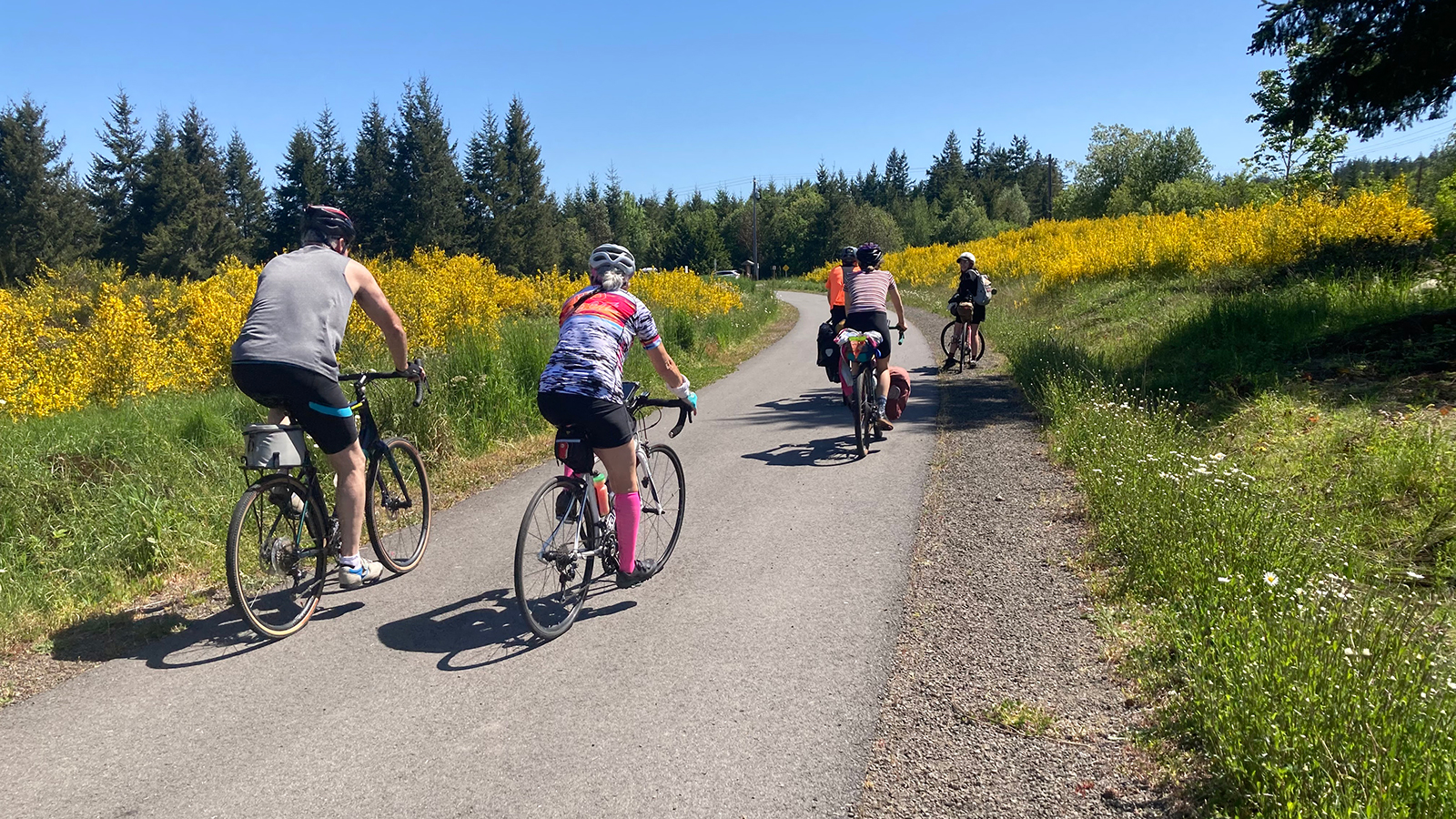Help us refine phase 1 of the Cycle Highways Action Plan
Many of us would like to travel between nearby communities in Washington without driving. In the 2023-2025 biennium, Washington state legislators funded a proviso that could support developing cycle highways, which would make it easier, safer and more comfortable to travel longer distances using active transportation.
We have completed a Cycle Highways Action Plan draft report. This open house webpage includes background information about the report and a link to the draft report.

What are Cycle Highways?
Cycle highways facilitate travel the same way for bicyclists as highways do for drivers. These travel networks on state and local roads make it easier to bike, use micromobility or incorporate other forms of active travel when we travel between communities. They make it easier for more people to make more trips biking and rolling.
Cycle Highways support our state’s transportation goals
WSDOT is developing a transportation system with the goal of enabling everyone to travel safely and comfortably no matter how they get around. Not everyone wants to or is able to drive, and when people have more travel options, they have more choices for how to get to where they need to go. Improving travel options helps the whole transportation system function better when on average travelers don’t have to drive as many miles to accomplish their daily needs.
The state’s Active Transportation Plan (ATP) provides direction for walking, biking and rolling in Washington including a conceptual statewide bikeway and trail network. Phase 1 of the Cycle Highways Action Plan builds on these efforts plus many local and regional efforts and lays out a strategy for cycle highways in Washington state.

Why are we studying this?
The state legislature directed WSDOT staff to conduct “the preliminary phase of an action plan for the establishment of cycle highways in locations that connect population centers and support mode shift” (2024 Supplemental Transportation Budget, ESHB 2134, Section 224 (4)).
What does the report do?
The report sets out a framework for how Washington could develop a program to support a cohesive network of cycle highways across the state. Future work would include creating estimated costs and a system to prioritize segments that will create more connected miles where they’re most needed. It also identifies features of successful cycle highways from leading peers.
The draft report is due to the state legislature June 30, 2025. We are publishing the draft report ahead of this deadline to give Washingtonians an opportunity to learn about and help inform the possible development of cycle highways. There is already a lot of work happening to develop shared use paths, trails and regional cycling facilities in our state. We want to bring more awareness to this while gathering community input and connecting with potential partners, including those who could provide useful data.

Read the report
Title VI and ADA Notice to Public
It is the Washington State Department of Transportation’s (WSDOT) policy to assure that no person shall, on the grounds of race, color, national origin, as provided by Title VI of the Civil Rights Act of 1964, be excluded from participation in, be denied the benefits of, or be otherwise discriminated against under any of its programs and activities. Any person who believes his/her Title VI protection has been violated, may file a complaint with WSDOT’s Office of Equity and Civil Rights (OECR). For additional information regarding Title VI complaint procedures and/or information regarding our non-discrimination obligations, please contact OECR’s Title VI Coordinator at (360) 705-7090.
ADA – This material can be made available in an alternate format by emailing the Office of Equity and Civil Rights at wsdotada@wsdot.wa.gov or by calling toll free, 855-362-4ADA(4232).
Translation Services
If you have difficulty understanding English, you may request language assistance services free of charge by calling 360-705-7090 or emailing TitleVI@wsdot.wa.gov.
Español – Spanish servicios de traducción Aviso a personas con dominio limitado del idioma inglés: Si usted tiene alguna dificultad en entender el idioma inglés, puede, sin costo alguno, solicitar asistencia lingüística con respecto a esta información llamando al 360-705-7090, o envíe un mensaje de correo electrónico a: TitleVI@wsdot.wa.gov.
中文 – Chinese 翻译服务 如果您难以理解英文,则请致电:360-705-7090,或给我们发送电子邮件: TitleVI@wsdot.wa.gov,请求获取免费语言援助服务。
tiếng Việt-Vietnamese các dịch vụ dịch thuật Nếu quý vị không hiểu tiếng Anh, quý vị có thể yêu cầu dịch vụ trợ giúp ngôn ngữ, miễn phí, bằng cách gọi số 360-705-7090 hoặc email cho chúng tôi tại: TitleVI@wsdot.wa.gov.
한국어 – Korean 번역 서비스 영어로 소통하는 것이 불편하시다면, 360-705-7090으로 전화하시거나 다음 이메일로 연락하셔서 무료 언어 지원 서비스를 요청하실 수 있습니다: TitleVI@wsdot.wa.gov.
Af-soomaaliga – Somali Adeegyada Turjumaada Haddii ay kugu adag tahay inaad fahamtid Ingiriisida, waxaad, bilaash, ku codsan kartaa adeegyada caawimada luuqada adoo wacaaya (360) 705-7090 ama iimayl noogu soo dir: TitleVI@wsdot.wa.gov.
русский – Russian Услуги перевода Если вам трудно понимать английский язык, вы можете запросить бесплатные языковые услуги, позвонив по телефону (360) 705-7090 или написав нам на электронную почту: TitleVI@wsdot.wa.gov.
الْعَرَبِيَّةَ – Arabic خدمات الترجمة
طريق الاتصال بالرقم- (360-705-7090) أو مراسلتنا عبر البريد الإلكتروني:TitleVI@wsdot.wa.gov.
